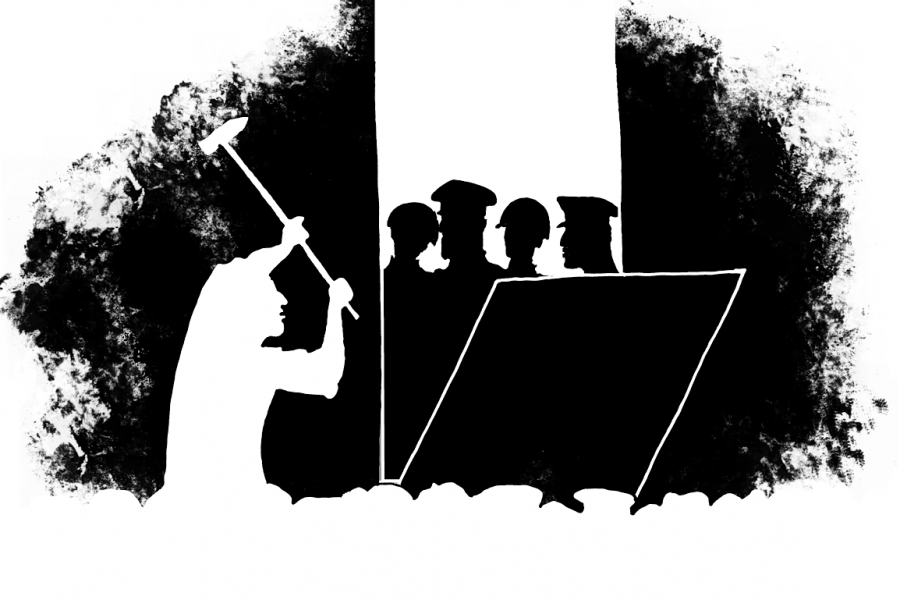Newspapers, television and social media were filled this weekend with stories about the Berlin Wall. In case you were not paying attention, it came down 25 years ago, on Nov. 9, 1989. Thousands of young men and women, trapped in the East German police state, decided on that cool evening that they would no longer tolerate their collective imprisonment by a repressive regime. They pushed their way into the more prosperous and freer West Berlin, and they demanded rights and opportunities long denied. After decades of restriction, this movement was possible because the leader of the Soviet Union, Mikhail Gorbachev, made it clear that he would not use force, as Moscow had in the past, to prevent popular change. Other foreign leaders, including Presidents Ronald Reagan and George H.W. Bush, contributed to the atmosphere of peace and cooperation that encouraged people to take history into their own hands.
And they did, with enormous courage and speed. In a little more than two years after the fall of the Berlin Wall, East and West Germany were reunited, Poland, Hungary and Czechoslovakia held free elections, and the Soviet Union disintegrated into 15 separate states. The global struggle between communism and capitalism ended with the collapse of the former. The persistent terror of thermonuclear war eased as the countries with the largest nuclear arsenals no longer threatened to launch these horrible weapons against one another. The Cold War era of fear and conflict opened into a period of great hope and newfound cooperation between a new Russia, a new European Union and a revitalized United States.
It was a great time to be young. I remember it very well. When I entered high school in 1986 the Soviet Union was still the “evil empire.” When I graduated in 1990 the world was freer and safer than ever before. As we started college, my fellow students and I felt like we could do anything. The possibilities seemed endless. If citizens in East Germany could tear down the Berlin Wall, then we surely could do something big. After all, we had educational opportunities foreign citizens could only dream about, and we had access to resources they could not even imagine.
Our privilege in a time of great change inspired a deep sense of obligation. As children of the end of the Cold War, we felt a mission to make the world a better place, to show that we could make the promises of the moment real. Many of my classmates did just that. They created Google, they invented life-saving medical procedures, they founded new human rights organizations, they became respected judges and some even wrote books and taught talented students. Our career paths included comfortable compensation but also awareness that there was something more. Watching the fall of the Berlin Wall at a formative moment in our lives, we were all idealists and true believers.
Slowly, however, the idealism from 1989 has faded throughout our society and the wider world. Maybe our expectations were too high, and we were bound to be disappointed. Maybe we overestimated ourselves and underestimated the corruption, sectarianism, violence and greed that remained present in a post-Cold War world. Maybe — and this one stings — we did not live up to our own moral commitments. Yes, I mean all of us who received a burst of opportunity in 1989. Have we been true to our ideals and aspirations?
I am afraid the answer might be a qualified yes, at best. Our generation, now in our early 40s, contributes more than any before to philanthropy, but we also spend more of our time working than our predecessors. Are we working longer hours to build a better world? Is there a correlation between time in the office and contributions to society? My fear is that the relationship might be inversely correlated.
Despite the frequent criticisms we voice about our society today, we have mastered operating within the system rather than changing it. We are professionals, not revolutionaries; innovators, not reformers. Instead of tearing down walls, we seem to spend more of our time reinforcing them and building new ones. For evidence of this, look at our southern border, our prisons, our gated communities and our airports. We limit people’s movement for security and we separate populations for control. We are less free and open as a society today than we were 25 years ago, and we have accepted that and learned to live with it.
The memory of 1989 should encourage us to question our present. The young men and women who brought down the Berlin Wall were tenacious in their pursuit of freedom and justice. They put their lives on the line for a dream of a better world, and they made it a reality. Isn’t it time we all did the same? There are plenty of good causes in need of attention. What our current world really needs is more citizens willing to tear down the walls rather than live comfortably within them.
Suri is a professor in the Department of History and the LBJ School of Public Affairs.





















